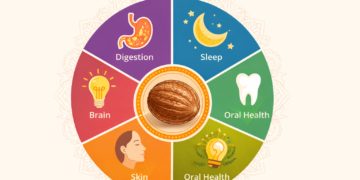What is Intermittent Fasting?
Intermittent fasting is an eating pattern where you alternate between fasting periods and eating windows. Unlike traditional calorie-restricted diets, its focuses on when you eat rather than what you eat. The goal is to allow your body time to burn fat and increase energy efficiency by timing food intake.
Common intermittent fasting methods include:
- 16/8 Method (Leangains Protocol): Fast for 16 hours and eat during an 8-hour window.
- 5:2 Method: Eat normally for 5 days a week and restrict calories to 500-600 on the other 2 days.
- Eat-Stop-Eat: Fast for 24 hours, once or twice a week.
- Alternate-Day Fasting: Fast every other day, with some variations allowing up to 500 calories on fasting days.
- The Warrior Diet: Fast for 20 hours, then eat during a 4-hour window.
Each method has distinct benefits and can be tailored to individual needs and goals. Whether you’re looking to lose weight, improve your health, or try a more extreme fasting routine, there’s a method that works for everyone.
Health Benefits of Intermittent Fasting
Intermittent fasting provides several proven health benefits, including weight loss, improved insulin sensitivity, and better heart health. Here’s how it can improve your overall well-being:
- Weight Loss and Fat Loss : Intermittent fasting helps control calorie intake by limiting the eating window. Studies show that its helps the body switch from burning sugar to burning fat for energy. This process significantly accelerates fat loss.
- Improved Insulin Sensitivity : Regular fasting can improve insulin sensitivity by reducing insulin levels, which helps the body manage blood sugar levels more efficiently. This is especially beneficial for those at risk of type 2 diabetes.
- Cellular Repair and Autophagy : Fasting stimulates autophagy, the body’s natural process of cleaning out damaged cells and regenerating new ones. This process has been linked to anti-aging effects and may help protect against diseases.
- Better Heart Health : Research shows that intermittent fasting can improve several heart disease risk factors, including cholesterol, blood pressure, and inflammation. This makes intermittent fasting a great strategy for cardiovascular health.
- Brain Health and Cognitive Function : Intermittent fasting increases the production of brain-derived neurotrophic factor (BDNF), a protein that supports brain function. This may help improve memory and protect against neurodegenerative diseases like Alzheimer’s disease.
- Longevity and Disease Prevention : Studies on animals suggest that intermittent fasting may extend lifespan by reducing inflammation and promoting cellular repair. While more human research is needed, the early findings are promising.
Intermittent Fasting Methods: Which is the Most Effective?
The effectiveness of intermittent fasting largely depends on your personal goals and lifestyle. Here’s a breakdown of the most popular methods:
- 16/8 Method : The 16/8 method involves fasting for 16 hours and eating within an 8-hour window. For many, this means skipping breakfast and eating between 12 pm and 8 pm
Effectiveness : This method is one of the easiest and most sustainable, making it ideal for beginners. Studies show that the 16/8 method can effectively reduce body fat and improve metabolic health. - 5:2 Method : The 5:2 method involves eating normally for 5 days and restricting calorie intake to 500-600 calories on the remaining 2 non-consecutive days.
Effectiveness : This method is great for those who want to fast without committing to it every day. Research shows that the 5:2 method can significantly reduce body fat and lower the risk of type 2 diabetes.
- Eat-Stop-Eat : With this approach, you fast for 24 hours once or twice a week.
Effectiveness : This method can lead to significant weight loss and improved metabolic markers. However, fasting for 24 hours can be challenging for beginners.
- Alternate-Day Fasting : This method involves fasting every other day. Some versions allow you to consume 500 calories on fasting days.
Effectiveness : Alternate-day fasting can lead to faster weight loss and improved metabolic health. However, it’s a more extreme method that may be hard to maintain long-term.
- The Warrior Diet : This method involves fasting for 20 hours and eating during a 4-hour window.
Effectiveness : The Warrior Diet can yield rapid results in terms of fat loss. However, due to its restrictive nature, it may not be sustainable for most people in the long run.
Overcoming Common Myths
There are several misconceptions about intermittent fasting. Here are some myths and the truth behind them:
Myth 1 : Intermittent Fasting Causes Extreme Hunger While hunger may be a concern when starting, most people find that their hunger levels decrease over time as the body adapts to the new eating pattern.
Myth 2 : Intermittent Fasting Leads to Muscle Loss If you consume adequate protein and engage in strength training, it does not result in significant muscle loss. In fact, it can help preserve muscle mass while burning fat.
Myth 3 : Intermittent Fasting is Hard to Stick With it becomes easier with time. Starting with a more moderate approach, like the 16/8 method, can make the transition smoother.
Myth 4 : You Must Fast Every Day While fasting every day can have benefits, intermittent fasting is highly flexible. Methods like 5:2 fasting allow for greater flexibility and sustainability.
Myth 5 : Intermittent Fasting is Only for Weight Loss While intermittent fasting is most commonly associated with weight loss, it also offers numerous health benefits, such as improved insulin sensitivity, better heart health, and brain function.
Is Intermittent Fasting Right for You?
Intermittent fasting can offer numerous health benefits, from fat loss and improved insulin sensitivity to better brain health and heart health. However, the best method depends on your personal goals, lifestyle, and health needs.
Before starting intermittent fasting, consult with your healthcare provider, especially if you have underlying health conditions. Remember, the key to success is finding a method that is sustainable and works for you.
Conclusion
Intermittent fasting is an effective strategy for improving health and achieving fitness goals, offering various methods that cater to different lifestyles. It can aid in weight loss, metabolic health, and longevity. By selecting a fasting protocol that aligns with your personal goals, and maintaining consistency despite initial challenges, significant physical and mental benefits can be realized. Consulting with a healthcare provider before starting is essential to ensure safety and suitability for individual needs.









